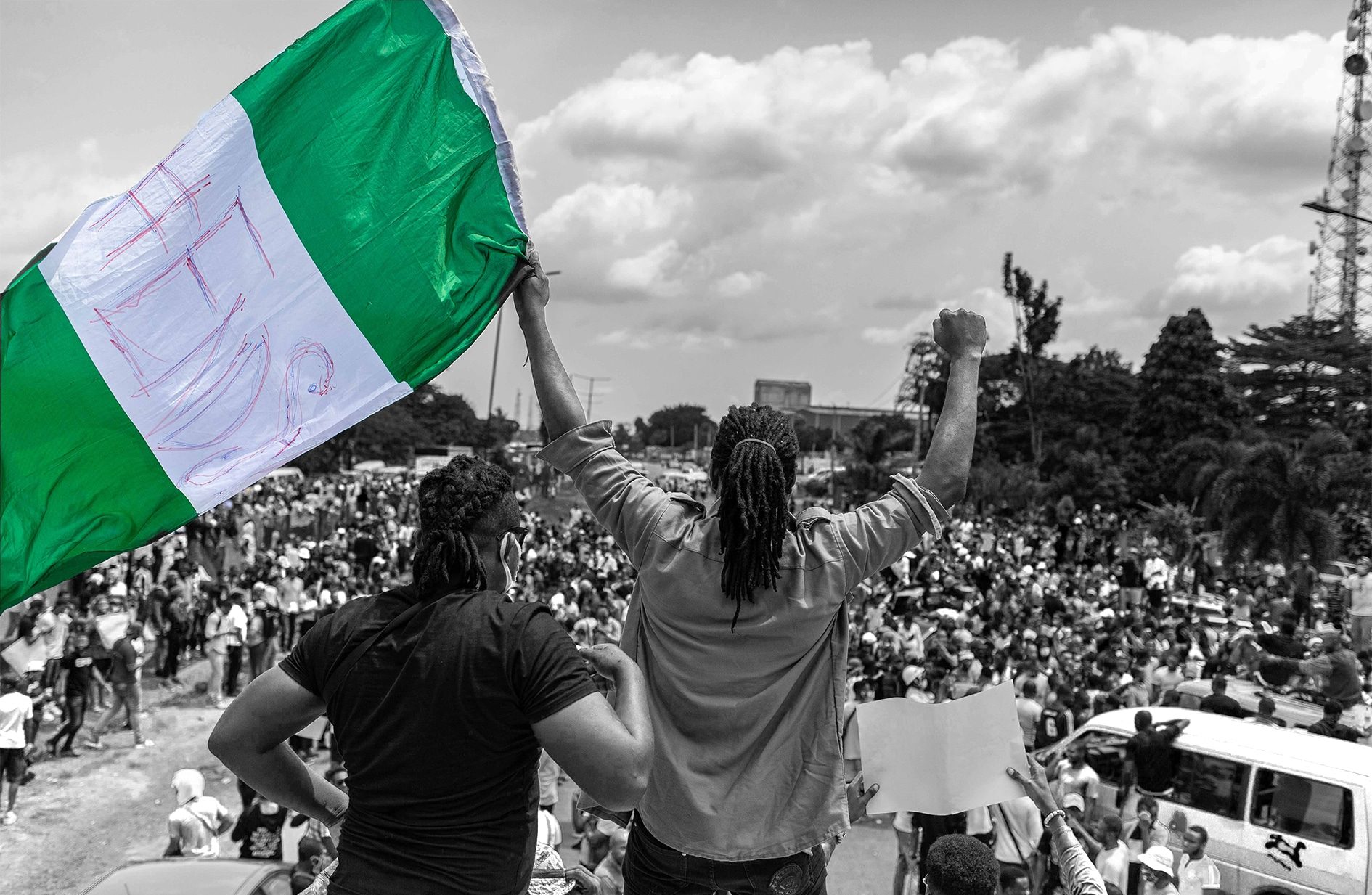After two weeks of massive demonstrations against police brutality brought Nigeria’s financial hub, Lagos, to a virtual standstill, government security forces using live ammunition opened fire Tuesday on hundreds of protestors rallying against a government-mandated 24-hour curfew.
KEY FACTS
At least seven people were killed during the melee, according to a Guardian report citing a popular African disc jockey, DJ Switch, who was live-streaming the demonstration on Instagram.

The protests began on October 7 with calls to disband an infamous police unit that had long been accused of extortion, torture and extra-juditial killings, the Special Anti-Robbery Squad (SARS).
SARS was dissolved on October 11, but quickly replaced by the Special Weapons and Tactics team, and demonstrations continued, only to be met with “excessive force” by government security forces, according to Amnesty International, including the use of tear gas, water cannons and live ammunition against protesters.
Almost 2,000 prison inmates escaped after crowds stormed two prisons Monday in Benin City in southern Nigeria, according the Associated Press.
On Tuesday, state officials deployed anti-riot forces to protect police and correctional facilities which some demonstrators had begun targeting, and announced a nationwide 24-hour curfew in response to the unrest.
At least 15 people have died during the demonstrations, according to Amnesty International.
KEY BACKGROUND
What began as mostly peaceful protests have turned increasingly violent in recent days. Groups of armed young men who are reportedly being paid to discredit the anti-police movement by powerful interests in Nigeria have allegedly been attacking the demonstrators, fueling the unrest, and provoking the government’s response. Tens of thousands of people have joined in the demonstrations across the country, but as they grow more violent, government security forces have responded in kind. The Nigerian Army said it was standing by in case “subversive elements and troublemakers” continue to cause problems for the police.
BIG NUMBER
21 Million. That’s how many people live in the state of Lagos, according to the Council on Foreign Relations, all of whom are supposed to adhere to the curfew. That’s more people than live in New York State.
CRUCIAL QUOTE
I have watched with shock how what began as a peaceful #EndSARS protest has degenerated into a monster that is threatening the well-being of our society. Lives and limbs have been lost as criminals and miscreants are now hiding under the umbrella of these protests to unleash mayhem on our state.” said Babajide Sanwo-Olu, Governor of Lagos.




FURTHER READING
Nearly 2,000 inmates escape in attacks on Nigeria prisons (Associated Press)
Nigeria deploying anti-riot police as curfew imposed in Lagos (Al Jazzera)
Nigeria’s anti-police brutality protests bring Lagos to standstill (The Guardian)
–by Daniel Cassady, Forbes Staff
